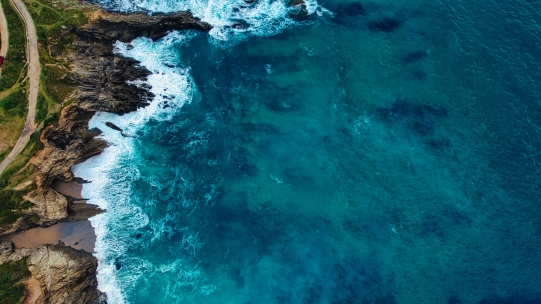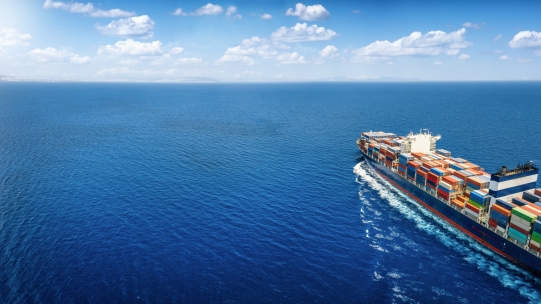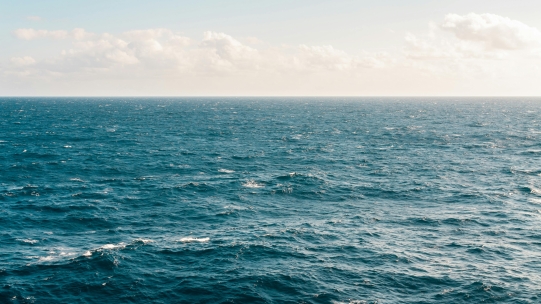UN Oceans Conference 2025: The private sector rises as a force for ocean stewardship
Read more

The UN Ocean Conference, co-hosted by the governments of Costa Rica and France, and held in Nice, France, from 9 to 13 June, marked a historic moment in advancing the global ocean sustainability agenda. The conference brought together Governments, businesses and various stakeholders to address urgent ocean-related issues ranging from biodiversity loss and overfishing to plastic pollution and the decarbonization of ocean industries.
This Conference was a hub for discussions focused on fostering collaboration to scale up initiatives. These efforts helped inform current and future decision-making related to sustainable ocean practices, building on the previous UN Ocean Conferences held in Lisbon (2022) and New York (2017).

The formal launch of the Ocean Investment Protocol
The third edition of the UN Ocean Conference (UNOC3) marked the formal release of the Ocean Investment Protocol. A partnership between the UN Global Compact and UNEP Finance Initiative, the Ocean Investment Protocol is a groundbreaking framework to help mobilize private capital in support of a Sustainable Ocean Economy. Recognizing the ocean’s critical role in climate resilience, food security, energy production and global trade, the Protocol outlines actionable steps for financial institutions, insurers, ocean industries, the private sector and various governments to scale investment in sustainable ocean sectors. From decarbonizing shipping and expanding offshore renewables to advancing sustainable seafood and coastal infrastructure, the Protocol identifies key opportunities and risk-management strategies needed to unlock sustainable finance. Tangentially, the Protocol itself also calls for stronger ocean literacy, better data access, globally aligned sustainability standards and policy environments that support innovation.
With the aim of establishing a new benchmark for how the financial sector can engage with the Sustainable Ocean Economy, this Protocol provides a foundation for building long-term economic value directly linked to ocean health and resilience.
European Investment Bank Vice-President Ambroise Fayolle noted that the Ocean Investment Protocol “provides governments, financial institutions, insurers and companies with the clarity and guidance needed to align private investments with the Sustainable Development Goals. By setting clear recommendations for responsible investment, the Protocol will help ensure that growth in ocean industries goes hand in hand with environmental stewardship and social inclusion.”
Following in the footsteps of the Ocean Investment Protocol, the Business Call to Action: Land and Sea, a Vital Connection for a Thriving and Resilient Economy, was unveiled at the Blue Economy and Finance Forum. Co-convened by the UN Global Compact and several key partners, the declaration calls on businesses to monitor and care for the ocean and on policymakers to establish ambitious, science-driven policies that stimulate business action and jointly address land and ocean for enhanced global resilience.

The UN Global Compact also hosted and participated in high-level dialogues and events that pushed the boundaries of ocean action:
- Ocean Evening – 8 June
This session brought together global ocean leaders to emphasize multilateral partnerships for a sustainable ocean transition and to set the stage ahead of the UN Ocean Conference.
- Launch of the Ocean Investment Protocol Session – 8 June
Practical guidance and recommendations for accelerating sustainable investment in the blue economy were launched at the session. During the session, the Protocol was aligned with global frameworks like the Sustainable Ocean Principles and Blue Economy Finance Principles.
- From Nice to Belém: The Road to COP30 – 9 June
This session linked ocean-focused outcomes from UNOC3 to climate action goals at COP30. Stakeholders emphasized the need to integrate ocean action into countries’ climate strategies and adaptation plans.
- Oceans20 Policy Dialogue – 9 June
A discussion under South Africa’s G20 Presidency focused on ocean-related policy and multilateral collaboration. It will promote the role of ocean action in climate, energy, food systems and inclusive growth.
- Ocean Data for Action – 9 June
The discussions emphasized transparency and bathymetric data access to support marine spatial planning and sustainable investment.
- Engineering for Ocean Sustainability – 10 June
This session highlighted how engineering and innovation can create safe and sustainable ocean infrastructure, calling for science-based decision-making in ocean policy and development.
- Navigating Arctic Futures – 10 June
This session, held aboard the Statsraad Lehmkuhl, addressed the Arctic’s role as a bellwether for climate change discussions. The focus was on drafting evidence-based governance for protecting fragile marine ecosystems.
Ocean Centres Launch – 10 June
The UN Global Compact and partners unveiled a new network of regional Ocean Centres. These hubs will support sustainable ocean industries across seven countries by embedding safety in policy and investment.- Blue Value, Shared Future: Mediterranean Business Innovation for a Sustainable Blue Economy – 11 June
This forum gathered Mediterranean businesses to showcase low-emission, sustainable blue economy models. Key sectors included shipping, tourism, energy, food and finance.

What does this all mean for business?
For business professionals, policymakers, and other key stakeholders, this conference could not have come at a more critical time. The ocean is at an urgent tipping point, and the time to act is now. As UNOC3 concludes, one message continues to ring loud and clear: private sector engagement is pivotal in transitioning to a healthy and productive ocean. With frameworks like the Ocean Investment Protocol and initiatives like the Ocean Centres, the UN Global Compact is helping shift the narrative from ocean exploitation to opportunity in the Sustainable Ocean Economy. The momentum built in Nice is expected to shape global discourse as attention now turns to COP30 in Belém, the G20 Summit in South Africa and the broader 2030 Agenda.


